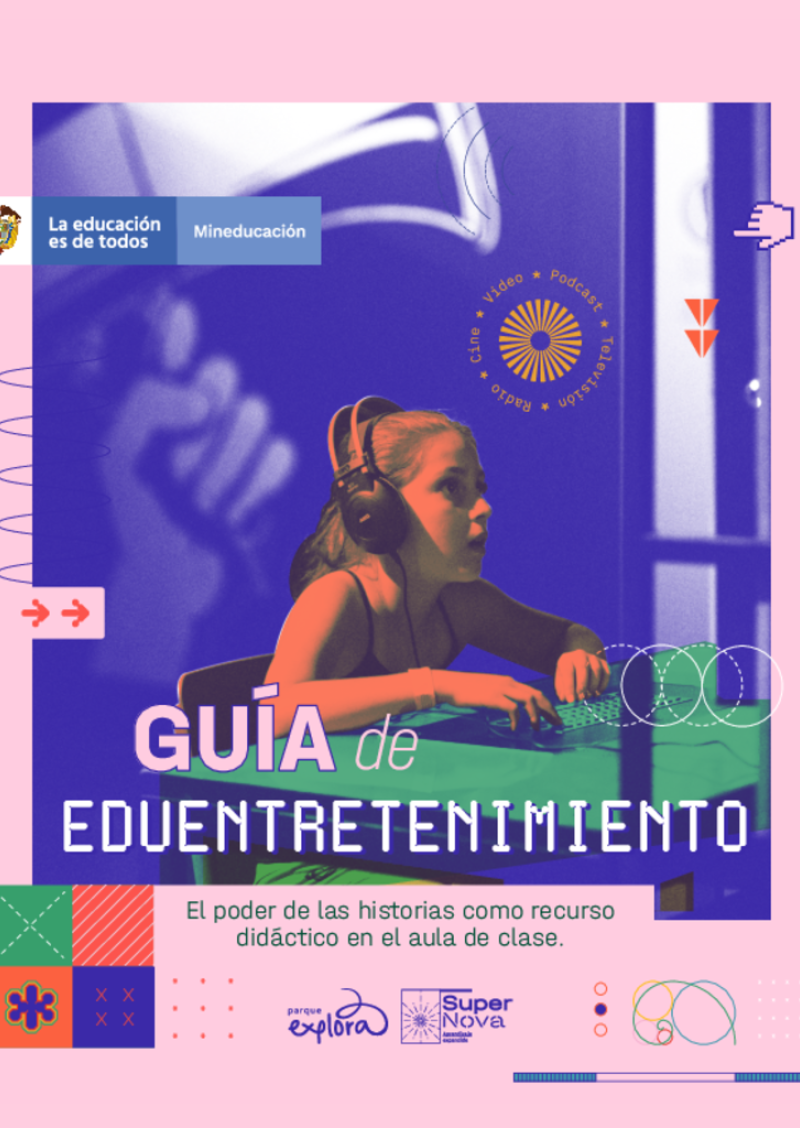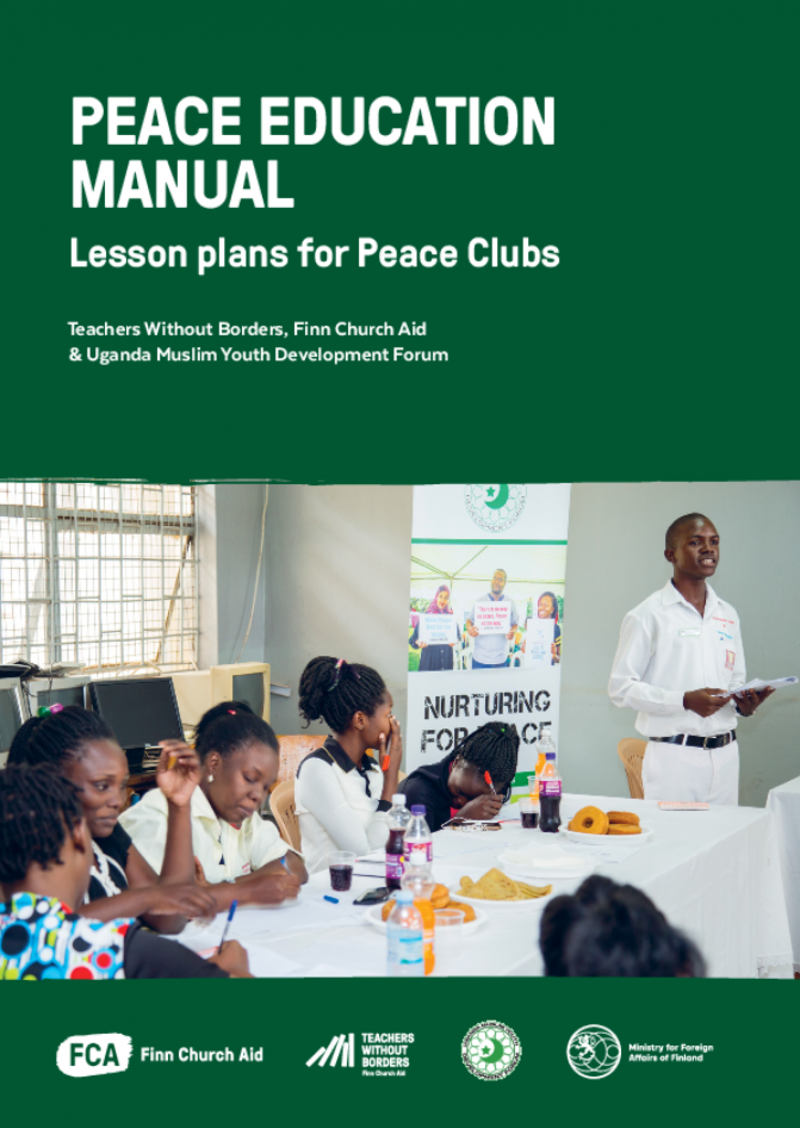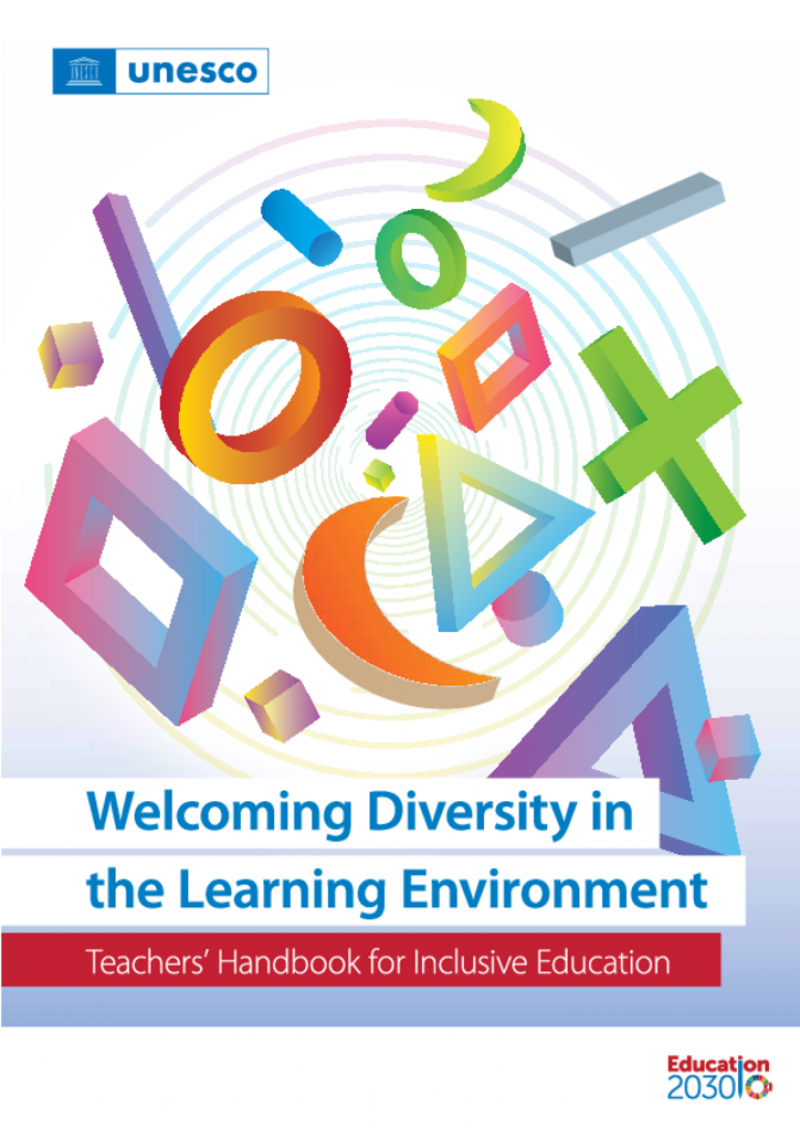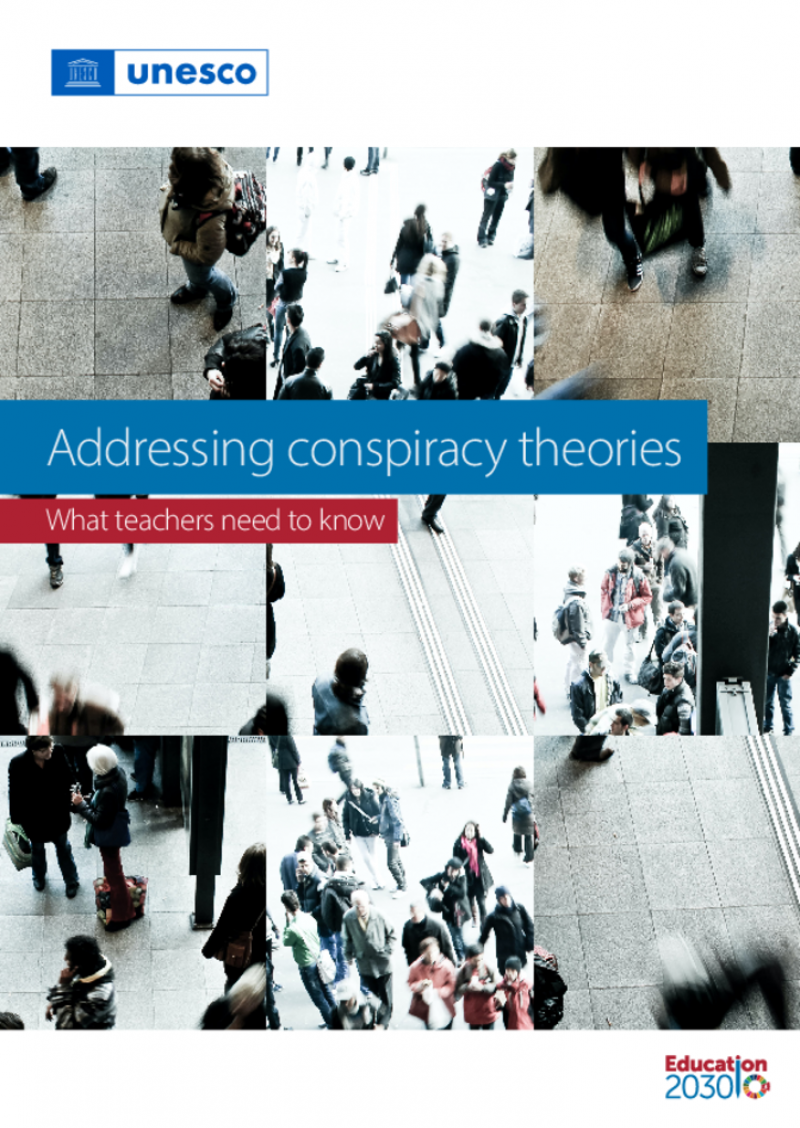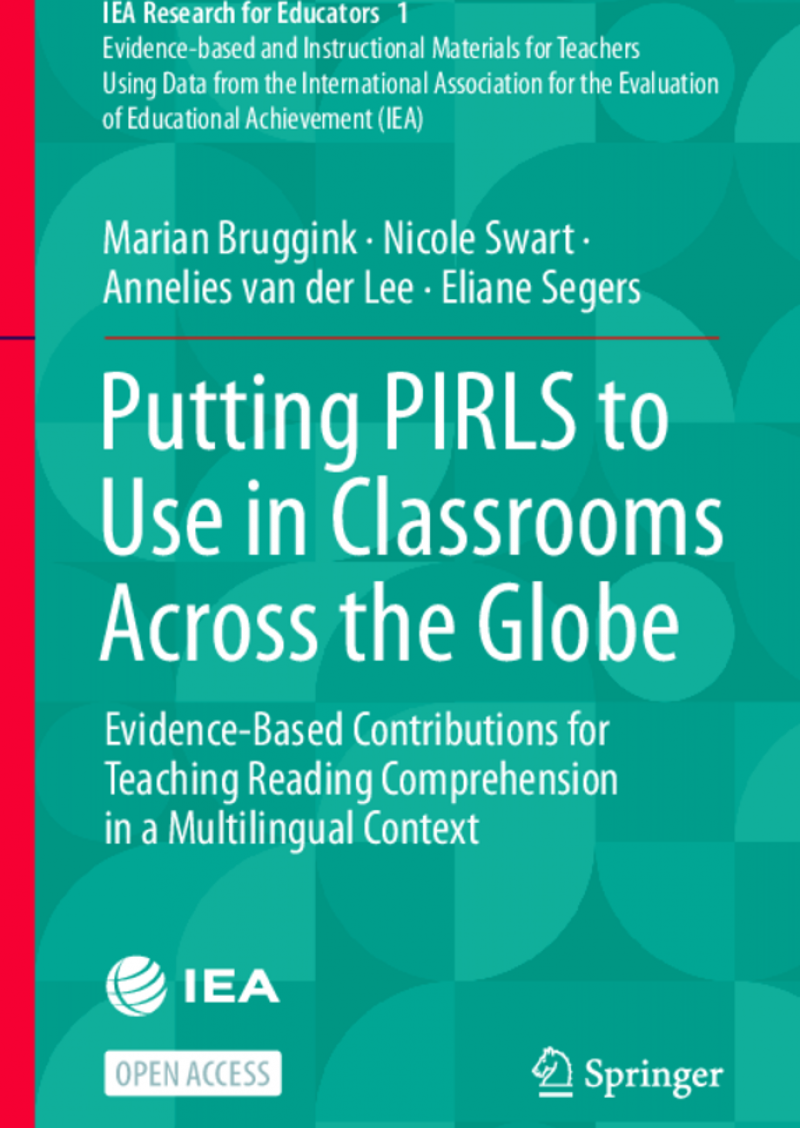Teacher Resource Centre
Displaying 1 - 17 of 17
Aprender haciendo con experiencias etnoeducativas
Esta guía a destinación de los docentes busca implementar la educación intercultural bilingüe, enfocándose en la etnoeducación afroecuatoriana. Ofrece ejemplos prácticos, orientaciones metodológicas y estrategias para ajustar los contenidos curriculares. Además, promueve la formación continua de docentes y la participación comunitaria, fortaleciendo la identidad cultural y la memoria colectiva. También sugiere el uso de herramientas tecnológicas y materiales didácticos para enriquecer el aprendizaje.
Guía de eduentretenimiento – El poder de las historias como recurso didáctico en el aula de clase
El eduentretenimiento es una metodología de comunicación definida por la UNESCO que se basa en narraciones como medio de transmisión del conocimiento. El objetivo es cautivar la atención de la audiencia para generar empatía y emociones, reconocidas como marcadores de aprendizaje. Se trata de una guía para el docente sobre cómo movilizar este tipo de fuente con sus alumnos en el aula o en otros contextos. Contiene también una diversidad de recursos con enfoque en áreas STEM (ciencia, tecnología, ingeniería, matemáticas).
Activité pour apprendre à créer une Ressource Éducative Libre, étape par étape
Cette formation, proposée par la chaire UNESCO RELIA de l’université de Nantes, vise à créer une Ressource Éducative Libre en quelques étapes simples. Elle se concentre sur les aspects pratiques tels que les droits d’utilisation, les licences disponibles et les méthodes de partage des ressources. Cet atelier permet de travailler en autonomie à travers des cours et des activités pratiques.
Boîte à outils sur la politique européenne de protection de la nature
Cette boîte à outils sur la protection de la nature aide les élèves à comprendre l'importance de la biodiversité et les menaces pesant sur la nature en Europe. Elle aborde les actions de l'UE pour protéger les écosystèmes et encourage les élèves à s'impliquer. Organisée en quatre modules, elle propose des activités interactives qui favorisent la réflexion, la collaboration, et la sensibilisation à la nature. Les élèves sont invités à explorer la nature, comprendre les enjeux de conservation, et développer des compétences pour contribuer à un monde plus durable. Des ressources complémentaires sont également fournies.
Édubref n°22 - Enseigner, oui mais à deux ?
ÉduBref propose dans un format court et abordable de revenir sur des travaux et études universitaires sur les pratiques éducatives. Ici, l'autrice présente les récentes recherches sur l'enseignement à plusieurs afin de bousculer la vision persistante de l’enseignant seul face à la classe et de montrer les avantages que peut avoir l’enseignement partagé. Ces pratiques sont notamment abordées dans le cadre d’une éducation inclusive dans le contexte français.
Peace Education Manual. Lesson plans for Peace Clubs
This Peace Education Manual has been developed in collaboration with Finn Church Aid (FCA) Uganda, local partner Uganda Muslim Youth Development Forum (UMYDF) and Teachers Without Borders (TWB) Network Finland.
The manual was developed to strengthen the pedagogical and methodological quality of local peace clubs during the spring and summer of 2022. The contents of the manual were successfully piloted with more than 480 young people in eight lower secondary school peace clubs established and run by UMYDF with the support of FCA in Uganda. Two of the peace clubs are located in the Bidibidi Refugee Settlement, one of the largest refugee settlements in the world.
The material consists of 34 lessons plans and is primarily aimed for young people. The different sections and activities of the material can be used flexibly in training, clubs, or, for example, as individual lessons on peace building, socio-emotional skills, conflict resolution or cooperation skills. The exercises are functional, learner-centered and emphasize active participation of youth. The material is adaptable for use anywhere in the world.
FCA and UMYDF have been working together since 2016 in Uganda to promote the positive role of youth in conflict prevention and peacebuilding. In our work, peace education is defined as a holistic, multidisciplinary and transformative process that seeks to develop capacities that promote non-violent conflict resolution, respect for human rights and active participation.
ETF READY model
The European Training Foundation's READY model (Reference model for Educators' Activities and Development in the 21st century) offers a structured way to identify the professional practices and development needs of the 21st century educators.
Welcoming diversity in the learning environment: teachers' handbook for inclusive education
This teachers' handbook is intended to serve as a practical resource to help teachers and teacher educators to gain understanding of the multiple issues of inclusion in their day-to-day work and acquire competencies that facilitate inclusive pedagogy. The handbook is comprised of nine modules – each of which presents the conceptual discussion of key topics related to inclusion and diversity and features some promising case studies, instruments and approaches. It also provides a framework for ensuring learning continuity in the wake of crises and emergencies such as the COVID-19 pandemic, and deals with a range of topics aimed at building the capacities of teachers and teacher educators for recovery and resilience in education systems in the COVID-19 context.
Transformative pedagogy: a teachers’ guide for peace and resilience building in North Africa
This guide is designed to build the capacity of teachers so that they are informed and empowered in why and how to educate for peace-building. It offers an analysis of conflict, examines the role of ethics, expands on the elements of transformative pedagogy. It also provides practical tools to support learners’ active participation in shaping the world around them and assess learners’ understanding of peacebuilding concepts and skills, all while engaging the community.
Addressing conspiracy theories: what teachers need to know
This document intends to support educators limit the dissemination of conspiracy theories by responding to them when they are shared among learners or within the wider school community.
Cyberbullying on social media: an analysis of teachers’ unheard voices and coping strategies in Nepal
Teachers can be potential victims of cyberbullying, particularly targeted by their students at their workplaces.
This article explores teachers' individual coping strategies of sharing, ignoring and enhancing self-efficacy to handle technology strongly and confidently, and it concludes with the implications of collaborative coordination necessary for the development of strong policies and strict cyber laws for ensuring teachers’ cybersecurity in similar contexts.
Leitlinien für Lehrkräfte und pädagogische Fachkräfte zur Bekämpfung von Desinformation und zur Förderung der digitalen Kompetenz durch allgemeine und berufliche Bildung
Diese Leitlinien bieten konkrete, praktische Anleitungen für Lehrkräfte und Pädagog*Innen, vor allem in der Primar- und Sekundarstufe, um digitale Kompetenzen zu fördern und Desinformation zu bekämpfen.
Sie bieten klare Erklärungen zu technischen Konzepten, Übungen für den Unterricht zur Überprüfung von Fakten, Maßnahmen zur Förderung "guter" Online-Gewohnheiten und Methoden zur Bewertung der digitalen Kompetenzen von Schüler*Innen.
Putting PIRLS to use in classrooms across the globe. Evidence-based contributions for teaching reading comprehension in a multilingual context
This book aims to bridge the gap between science and practice and help teachers transform the latest scientific insights regarding reading comprehension into didactic guidelines to use in everyday practice for all students. It consists of two parts: Part I, Reading Comprehension: From Research to Practical Teaching Guidelines, comprises three chapters and discusses the teaching of reading comprehension in general. In Part II, Teaching Reading Comprehension in a Multilingual Classroom, the focus is on multilingual students.
How to help students develop reading comprehension skills
This Teacher Snippet XL looks at five key principles for teaching reading comprehension as defined in Putting PIRLS to Use in Classrooms Across the Globe, the first volume of the Research for Educators Series and is illustrated with a text from IEA's PIRLS (Progress in International Reading and Literacy Study) 2016.
IEA English resource pack for educators
This resource pack is based on IEA’s Progress in International Reading Literacy Study (PIRLS) and uses the PIRLS materials to support the best practices for teaching reading comprehension in a classroom. It accompanies the How to Help Students Develop Reading Comprehension Skills Teacher Snippet XL and book Putting PIRLS to Use in Classrooms Across the Globe, which is part of the IEA Research for Educators series.
It contains reading passages with corresponding questions and the related scoring guide to address students’ needs in reading comprehension processes. The scoring guide provides correct answers for multiple choice questions (MC) and points to the evidence that needs to be considered in deciding about correctness of the responses to the constructed response questions (CR) with some useful examples included. The international averages displayed for each question illustrate how challenging the questions were overall for students in PIRLS 2016.
When using the passage as an evaluation, the results should be used in a formative way for helping teachers identify and focus on the processes that students are having difficulties with.
Transformative pedagogy for learning to live together in Southern Africa. A practical guide
This guide is designed to build the capacity of teachers and education planners so that they are informed and empowered in why and how to educate for living together and epace building . It offers an analysis of conflict, examines the role of ethics, expands on the elements of transformative pedagogy and provides practical tools to promote learners’ active participation in shaping the world around them and assess their understanding of citizenship and peacebuilding concepts.
Transformative pedagogy empowers both teachers and learners. It encourages learners to be reflective and critical thinkers capable of contributing meaningfully as members of local and global communities. It also redefines the role of teachers. Teachers become facilitators with the disposition, knowledge, skills and commitment to support students in developing their full potential as peacebuilders. This guide can serve in universities, teacher training colleges and schools.

